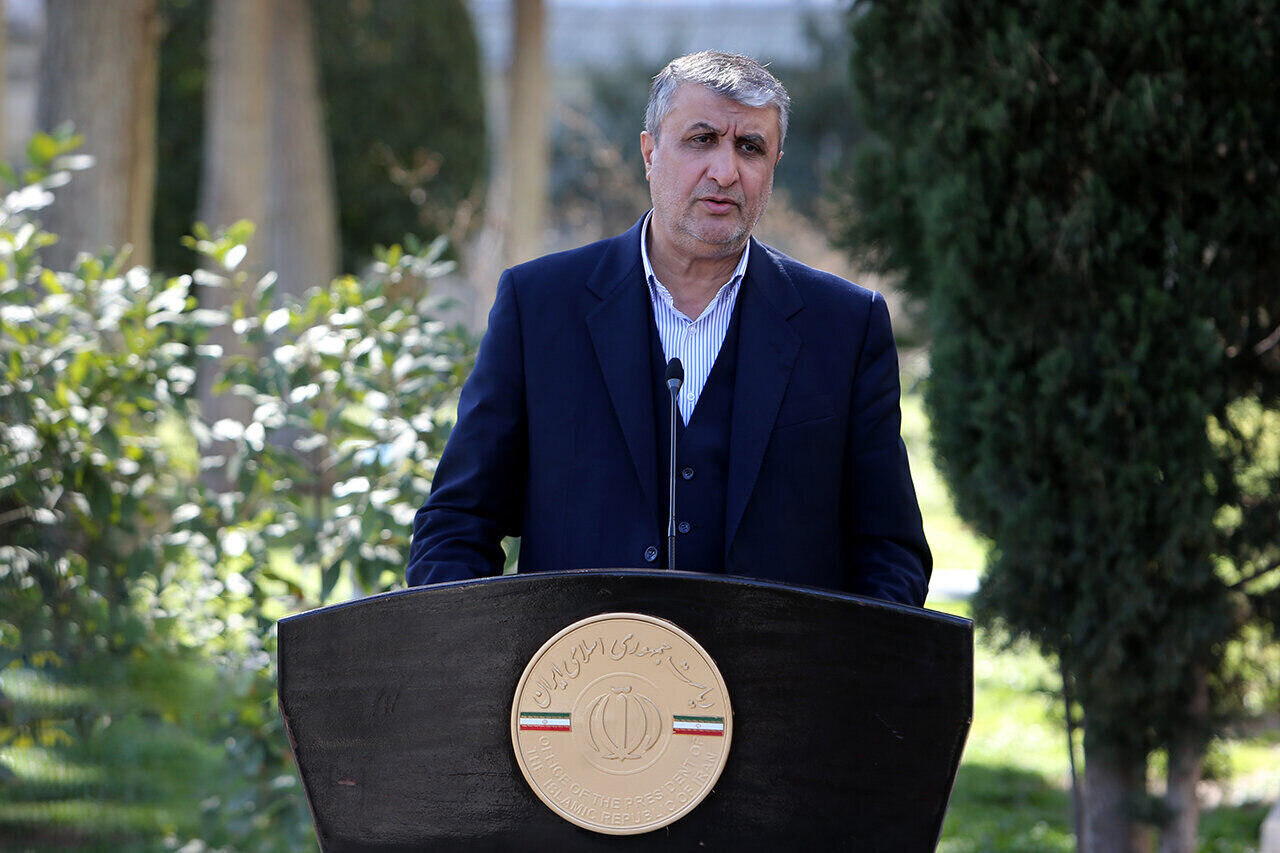Nuclear activities under IAEA rules: nuclear chief

TEHRAN - Iran’s senior nuclear official stated on Wednesday that the country’s nuclear operations comply with IAEA rules and safeguards agreements, despite accusations by Zionist-affiliated media that Iran has constructed additional nuclear facilities.
Talking to reporters after a cabinet meeting, Mohammad Eslami asserted that the Zionists have attempting to spread false information about Iran for years.
Eslami, head of the Atomic Energy Organization of Iran (AEOI), referred to such campaigns as “psychological warfare by the enemy” and maintained that the Zionists always accuse Iran of such actions whenever they are at a standstill or under pressure as a result of their failures in the region.
In a report on Monday, the Associated Press claimed near a peak of the Zagros Mountains in central Iran, workers are building a nuclear facility so deep in the earth that it is likely beyond the range of a last-ditch United States weapon designed to destroy such sites.
It said the photos and videos from Planet Labs PBC show Iran has been digging tunnels in the mountain near the Natanz nuclear site.
Official calls threats against Iran’s nuclear sector pointless
The domestication of the nuclear sector has rendered threats against Iran’s nuclear program utterly useless, the AEOI spokesman said on Wednesday.
Behrouz Kamalvandi made the remarks while addressing a meeting of the heads of Iranian diplomatic missions at the Foreign Ministry.
Even foes have recognized that Iran’s nuclear capabilities have reached a point where they cannot be eliminated, Kamalvandi asserted.
Noting that the country’s nuclear capabilities have become deeply ingrained and indigenous, Kamalvandi further emphasized that the nuclear industry is a driving force in different industries and is not limited to a specific field.
He went on to say that Iran can provide one million patients with radiopharmaceuticals.
The spokesman also pointed to U.S. sanctions against Iran, saying the U.S. had claimed that medicines were not subject to sanctions, “but the truth was something else.”
“The nuclear fuel cycle of Iran cannot be disputed”
Eslami also spoke at the same event in which he emphasized Iran’s nuclear achievements, notably the development of heavy water technology.
He said multiple organizations from various countries are interested in purchasing Iranian heavy water and its derivatives.
“Today, the whole nuclear fuel cycle, namely exploration, extraction, processing from mines, conversion, enrichment, and production of fuel and its use in reactors, is being carried out by our young and hardworking experts and scientists,” Eslami explained.
Additionally, he declared that Iran’s nuclear fuel cycle capabilities “cannot be negated.”
The nuclear chief said that Iran would not have been able to develop radiopharmaceuticals to counter the effects of sanctions that put the lives of many people in peril if its reactors had not been operating or lacked the nuclear fuel cycle.
By signing a nuclear agreement with six major countries (the five permanent members of the UN Security Council plus Germany) in 2015, Iran proved to the world the benign nature of its nuclear program.
However, Washington unilaterally withdrew from the agreement, officially called the Joint Comprehensive Plan of Action (JCPOA), in May 2018 and re-imposed sanctions against Tehran.
In April 2021, talks between the deal’s parties began in Vienna with the goal to bring the U.S. back into the agreement and ending its “maximum pressure” campaign against Iran.
However, because of Washington’s insistence on not removing all of the anti-Iran sanctions and providing the requisite assurances that it won’t quit the agreement again, the negotiations have remained inactive since September 2022.
Leave a Comment